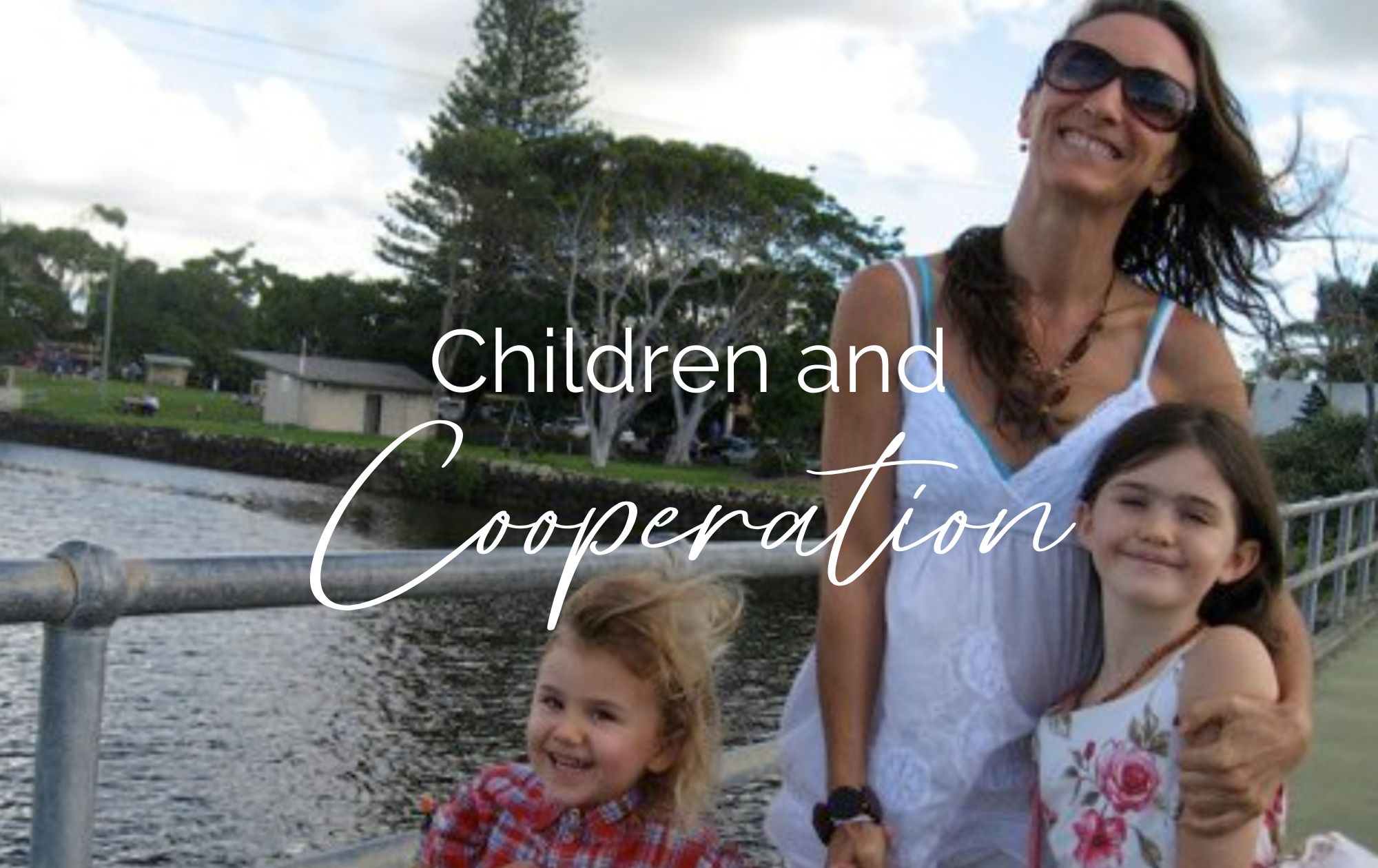I often give the following example to parents when I talk about children and cooperation.
If you were in a job, and your ‘boss’ came to you and said in a cold tone, with a tense body posture, and without looking at you;
“Right, today you have to do this new project. You have to do it now. Bring it to me when you’ve finished it. Please.”
How would you feel? Especially if you had no interest in the project?
But how about if she came and said, with a warm tone, a relaxed posture, and a calm presence;
“Hi, (your name)! How are you today? Guess what! That new project came in for us to do today. I know that you aren’t interested in this campaign; I so understand – I find it pretty boring too! So I was wondering how we could make it fun. I’ve asked Polly if she is willing to join in too, and I thought we could all do it together. I’ve brought superfood smoothies for us to have and I thought we could have some dance breaks, just to get through it. The company really want it done today. Would you be willing to join in with Polly and I? I’d really appreciate your presence.”
How would you feel? Would you be more likely to be willing?
Sometimes we can forget that children are human beings too, and that so many of the things that are important to us are not important to them.
So often, we ask them to do things because of our needs, or because of cultural conditioning and societal norms, as well as our needs for their safety and wellbeing.
So, just like us, children are much more likely to be willing to cooperate with us in doing something we want them to do if they:
Feel connected with us, and are feeling in their bodies a sense of care from us;
(That might ask of us to connect in with our own breathing, come close, offer eye contact, and express our request in warm tones.)
Understand the reason for the request:
(That might mean we share about why we are asking them to do what we want them to do.)
Have a sense of choice and autonomy;
(In our language and energy we can community our respect for those needs – such as saying, “are you willing?” and avoiding things like, “you have to, you should, you ought to, you must.”)
Are feeling relaxed and happy;
(If they’re feeling tense and have painful feelings bubbling, it’s going to be very hard for them to be willing to cooperate, just as it is for us as adults. Understanding how to help them feel relaxed and happy, including with attachment play and listening to accumulated painful feelings, helps them be more relaxed and comfortable and more connected with their natural willingness to cooperate.)
All aspects of Aware Parenting help us with all of these elements:
It prioritises warm loving connection between parent and child;
It understands the importance of giving a child information
(whilst knowing that this is just one aspect of eliciting cooperation);
It supports the child’s needs for autonomy and choice;
It supports the healthy expression of feelings through supported laughter, crying and tantrums
(so that children can feel relaxed and happy more of the time).
If you’d like to dive deeper into attachment play, I have an ATTACHMENT PLAY MASTERCLASS – Using play to elicit cooperation, create connection, prevent aggression and release repression.
In this masterclass, I help you understand why children don’t cooperate, or are aggressive or repress their feelings, and I will show you particular forms of attachment play that not only help you feel more connected with your child, but also help elicit cooperation, prevent aggression and release repression.
It’s in the Attachment Play Course group.
This is most suitable for parents of children aged 2-8.
